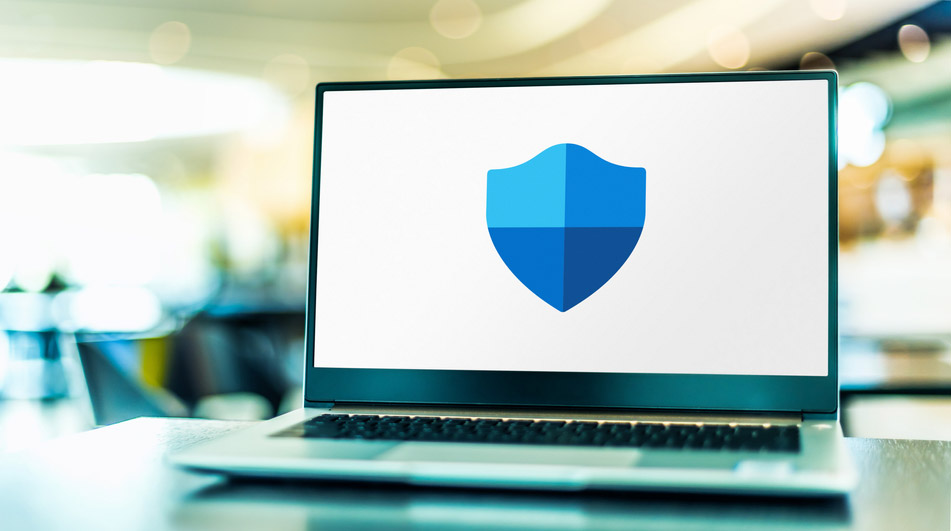Is Windows Defender good enough for my new laptop?
Microsoft’s Windows Defender antivirus software now comes with Windows but is it good enough?

If you’ve just purchased a new Windows laptop, you may be wondering if you need to buy third-party antivirus software for your new machine because of the threats posed by malware and other viruses.
Fortunately, you may not need to as both Windows 10 and Windows 11 now come with their own antivirus software called Microsoft Defender Antivirus, aka Windows Defender. While it used to be terrible, over the past few years, Microsoft has really turned it around and Defender is now one of the best antivirus software solutions at detecting, blocking and neutralizing malware.
Several of the other features found in paid antivirus products are also available for free in Windows 10 and Windows 11.
Parental controls can be activated in the “Family Options” section of the Windows Security dashboard and there’s a password manager hidden in the company’s Microsoft Edge browser that will sync your passwords with the Microsoft Authenticator app for Android and iOS. Meanwhile, an Edge feature called “SmartScreen” can block known malicious websites and downloads.
The downside of Windows Defender
The catch with Windows Defender and the other built-in security tools and features in Windows is that you have to stick to Microsoft products. This means using Edge instead of Chrome or Firefox as your default browser, Microsoft Office 365 instead of Google Workspace or LibreOffice and Microsoft Teams instead of Slack or Zoom.
As a result, if your Chrome or Firefox browser is used to visit a malicious website, you’ll have to rely on the browser’s own protection, not Microsoft’s. To be fair though, the protection offered by Chrome and Firefox is pretty good on its own.
Microsoft does have browser extensions for Chrome and Firefox but they’re limited to machines running the Pro, Enterprise or Education versions of Windows 10 and Windows 11.
Get instant access to breaking news, the hottest reviews, great deals and helpful tips.
Likewise, for the parental controls to work properly, your kids have to use Edge and no other browser on Windows. You can also put Microsoft Family Safety apps on your children’s Android and iOS devices but this requires a paid subscription to Microsoft Office 365.
Making your final decision
If you're comfortable with all this — and in our experience, Edge is lighter and faster than Chrome — then Microsoft Defender Antivirus and the related protections built into Windows 10 and 11 should absolutely be good enough to protect you from malware and give you a few useful extra security features as well.
But if you'd rather use Chrome or Firefox, Slack or Zoom, Google Workspace or LibreOffice instead of the corresponding Microsoft products, then it would be best to get one of the best Windows 10 (and 11) antivirus programs.
These third-party antivirus programs protect all browsers equally well, and detect threats in all kinds of applications, not just Microsoft's. You don't need to spend a lot, or even anything at all — one of the most impressive antivirus programs we've seen is Kaspersky Security Cloud Free.
If you have a multi-platform household and are willing to spend a bit more, you can shell out for one of the best internet security suites, which bundle in antivirus software for Mac and Android devices and generally come with parental controls and password managers as well. Some also toss in identity theft protection services, VPNs, backup software and cloud storage.
Ultimately, deciding on whether Microsoft Defender Antivirus is good enough depends on you. That seems like an evasive answer, but it's not. Choosing any antivirus software first involves figuring out what you need. The upside is that, unlike a few years ago, Defender is now a serious option that's well worth considering.

Anthony Spadafora is the managing editor for security and home office furniture at Tom’s Guide where he covers everything from data breaches to password managers and the best way to cover your whole home or business with Wi-Fi. He also reviews standing desks, office chairs and other home office accessories with a penchant for building desk setups. Before joining the team, Anthony wrote for ITProPortal while living in Korea and later for TechRadar Pro after moving back to the US. Based in Houston, Texas, when he’s not writing Anthony can be found tinkering with PCs and game consoles, managing cables and upgrading his smart home.
 Club Benefits
Club Benefits





